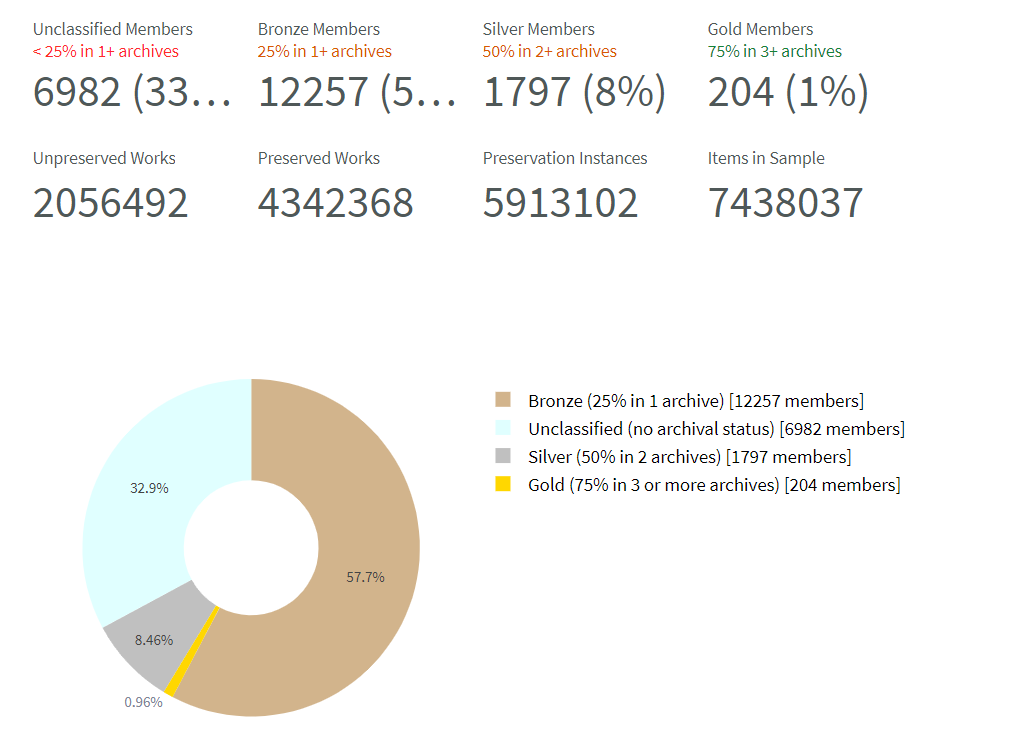
Digital Scholarly Journals Are Poorly Preserved: A Study of 7 Million Articles
Digital Scholarly Journals Are Poorly Preserved: A Study of 7 Million Articles https://opusproject.eu/wp-content/uploads/2024/03/6234123.png 1009 745 Open and Universal Science (OPUS) Project Open and Universal Science (OPUS) Project https://opusproject.eu/wp-content/uploads/2024/03/6234123.pngIn the age of digital transformation, where information is readily accessible with just a few clicks, we often take for granted the persistence of scholarly knowledge. However, recent studies shed light on a concerning issue: the inadequate preservation of academic research in the digital world. Let’s delve into the intricate web of digital preservation and its implications for the scholarly community.
The Evolution of Preservation
Traditionally, libraries played a crucial role in safeguarding knowledge by housing physical copies of scientific publications. This ensured that even if a publisher went bankrupt or a library closed, information remained accessible. However, with the transition to digital formats, the landscape of preservation has shifted.
Organizations like Crossref introduced systems such as the Digital Object Identifier (DOI) to provide permanent pointers to digital documents, promising continued access to scholarly works. These systems rely on the existence of “dark archives,” repositories containing copies of documents assigned DOIs, to mitigate the risk of information loss.
The Alarming Reality
A recent survey conducted by Martin Eve, utilizing Crossref data, unveils a troubling reality. Despite the existence of preservation systems, a significant portion of digital documents remains inadequately preserved. Of the 7,438,037 DOIs examined, approximately 27.64% are seemingly unpreserved, posing a substantial risk to the longevity of academic research.
Moreover, the study reveals a preservation deficit among Crossref members. Shockingly, only a mere 0.96% can confirm digitally preserving over 75% of their content across multiple archives. This alarming statistic underscores the urgency of addressing the shortcomings in digital preservation practices.
Navigating the Preservation Landscape
While the study provides valuable insights, it’s essential to acknowledge its limitations. It focuses solely on a subset of archives and tracks articles with DOIs, overlooking institutional repository coverage. Nonetheless, these findings serve as a wake-up call for libraries, publishers, and researchers to reassess their approach to digital preservation.
Charting a Path Forward
As we confront the challenges of digital preservation, collaborative efforts are imperative. Establishing clear standards and investing in robust preservation infrastructure are critical steps towards ensuring the endurance of scholarly knowledge in the digital age. Furthermore, raising awareness among stakeholders about the importance of preservation is paramount in addressing this pressing issue.
The preservation of scholarly research in the digital era demands concerted action. By recognizing the significance of this issue and committing to proactive measures, we can safeguard the integrity and accessibility of academic knowledge for generations to come. Let us heed the warning signs and work towards building a resilient digital preservation ecosystem that upholds the principles of scholarly inquiry and discovery.
Eve, M. P., (2024) “Digital Scholarly Journals Are Poorly Preserved: A Study of 7 Million Articles”, Journal of Librarianship and Scholarly Communication 12(1). doi: https://doi.org/10.31274/jlsc.16288
- Posted In:
- Open Science News




